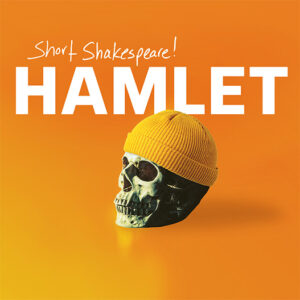TEACHER WORKSHOPS
All classroom teachers are invited to our free teacher workshops! Whether you’re teaching a particular play this year or simply wanting to learn more about approaching complex texts in the classroom, our free one-day workshops will immerse you in Shakespeare scholarship, interpretation, and pedagogy.
We start with a play. We create a learning laboratory where teachers can roll up their sleeves, take in new ideas and try out some drama-based, Common Core-aligned teaching strategies. We add a Shakespeare scholar to the mix, giving us historical and contemporary perspectives. Then we invite a leading Shakespeare artist to join us and explore the art of interpretation, from page to stage.
Get added to our email list to learn more about teacher workshops
Recent Teacher Workshops
Much Ado About Nothing Workshop
Saturday, November 8
4 PD Hours | Free
In preparation for our production, teachers dove into one of Shakespeare’s wittiest comedies. We spent the day working on ways to contextualize the play for students, so teachers could bring drama-based strategies directly back to their classrooms.
Facilitators

Neena Arndt
Neena Arndt is a dramaturg, writer, and professor. For 16 years, she served as Resident Dramaturg and Literary Manager at the Goodman Theatre, Chicago’s oldest and largest not-for-profit theater. At the Goodman, she was the dramaturg for 57 productions; highlights include the world premieres of Rebecca Gilman’s plays Luna Gale, A True History of the Johnstown Flood, and Swing State, and director Robert Falls’ productions of The Seagull, Uncle Vanya, The Cherry Orchard, The Iceman Cometh, Measure for Measure, and The Winter’s Tale. She has also worked with Milwaukee Repertory Theater, the American Repertory Theater, Actors Theater of Louisville, and Long Wharf Theatre, among others. She has taught at Boston University and DePaul University, and holds an MFA in dramaturgy from the A.R.T./MXAT Institute for Advanced Theatre Training at Harvard University.

Chris Anthony
Chris Anthony, M.F.A is a director, teacher, actor, and producer working at the intersection of art and community empowerment. As Associate Artistic Director of the Shakespeare Center of Los Angeles, she oversaw the development of the company’s Youth & Education programs, including Will Power to Youth, which won the prestigious Coming Up Taller Award and was studied by Harvard’s Project Zero, and Will Power to Schools, which offered teachers professional development, performances, and workshops. Professional directing credits include Off the Rails for Native Voices at the Autry, Lunch Lady Courage at Cornerstone Theater, A Midsummer Night’s Dream, Romeo & Juliet, and Othello at the St. Louis Black Rep, and Romeo & Juliet at Notre Dame Shakespeare and SCLA. Chris is an Associate Professor of Performance at DePaul University.

Sonia Goldberg
Sonia Goldberg (she/they) is a performer, writer, educator, and a proud Chicago native. Recent credits include Corduroy, SITC: Twelfth Night, Measure for Measure (Chicago Shakespeare Theater), Into the Woods, American Psycho (Kokandy Productions), Pippin (Music Theater Works), A Midsummer Night’s Dream (Oak Park Festival Theatre), Songs for Nobodies (Northlight Theatre), and Once Upon a Mattress (Theo), for which they received a Jeff Award Nomination for Best Performer in a Principal Role. Sonia has also collaborated with Chicago Children’s Theatre, Lifeline Theatre, First Floor Theater, Montana Shakespeare in the Parks, and many more. As a writer, her TYA choose-your-own-adventure play Think Fast, Jordan Chase! was developed through Filament Theatre’s SPARK program in 2021, which led to its World Premiere in 2023. Sonia was recently chosen as a finalist for Definition Theatre’s New Play Commission, Amplify (Series 4). She works in the education department at Court Theatre, and is a company member with Playmakers Lab. They’ve studied at Butler University, LAMDA, and The Moscow Art Theatre School. Sonia is represented by Grossman & Jack Talent.
www.soniagoldberg.com, IG: @soniagoldberg
Short Shakespeare! Hamlet Teacher Workshop
Saturday, November 15
4 PD Hours | Free
In this workshop, teachers tackled one of the most notorious tragedies in Shakespeare’s canon. As we’re gearing up for our Short Shakespeare! Hamlet student matinees, we gave teachers the opportunity to dive deeper into the text, add some new activities into their toolbelt, and get a taste of our production.
Facilitators

Edward Hall
Acclaimed theater, television, and film director Edward Hall joined CST in October 2023. In February 2024, he directed his debut production as Artistic Director—Richard III starring Tony nominee and Paralympic champion Katy Sullivan. In the 2024/25 season, he is directing Henry V, Short Shakespeare! A Midsummer Night’s Dream, and Sunny Afternoon. He previously directed the Jeff Award-winning Rose Rage trilogy at CST in 2003. Edward has built his love of Shakespeare around original interpretations of the Bard’s plays, staging acclaimed productions in London’s West End and on tour around the globe. He led the UK’s Hampstead Theatre for nearly a decade, transforming it into one of the nation’s most successful theaters for new work development, with over 100 world premieres. He was the founder and Artistic Director of Propeller Shakespeare for twenty years touring across the US, Europe, Asia, and beyond. He has served as an Associate Director at the National Theatre and Old Vic in London. His extensive film and television credits include The Heist Before Christmas starring Timothy Spall, Blithe Spirit starring Dame Judi Dench, multiple HBO and BBC series, and the season 4 finale for Downton Abbey. This season, Hall directs CST’s productions of Henry V, Short Shakespeare! A Midsummer Night’s Dream, and Sunny Afternoon. He is a member of the Arts Club of Chicago and Economic Club of Chicago.

Kay Daly
Kay Daly is a scholar, writer, novelist, book and theater reviewer, teacher, and public humanities advocate. She received her in English Literature from Northwestern University, where she taught courses on Shakespeare, drama, and literature. She also teaches adult enrichment courses focusing on arts and humanities at the Newberry Library in Chicago. She has written for a variety of publications and organizations including The Chicago Review of Books, TimeOut Chicago, the Metropolitan Opera, WNET New York Public Media, The Library of Virginia’s blog UnCommonwealth, Dramatics Magazine, and Centerstage Chicago. Her debut novel Wilton House, based on the life of 17th-century writer Lady Mary Wroth, will be published by Regal House Publishing in 2027. Born outside of Los Angeles, Kay has called Chicago home for more than thirty years.

Kevin Long
Kevin Long is a professor of theatre at Harper College, co-author of the book Bring on the Bard, the recipient of the Illinois Theatre Association’s 2012 Award for Excellence in College Theatre Teaching, and an associate member of the Stage Directors and Choreographers Society. He was nominated for the 2015 Tony Award® for Excellence in Theatre Education and was the recipient of the 2017 Motorola Solutions Foundation Endowed Award for Teaching Excellence. Kevin has worked professionally in various equity and summer stock theatres in New Jersey, Pennsylvania, West Virginia, Indiana, and Illinois. He has been teaching acting and theater classes for over twenty-five years and has directed over sixty productions. He frequently presents his workshop “Shakespeare Whispers in Your Ear,” which explores the language and theater of Shakespeare through the use of the First Folio. Kevin holds an MA in speech and performing arts from Northeastern Illinois University.
TEACHER HANDOUT RESOURCES
Short Shakespeare! Hamlet Teacher Handbook
This Teacher Handbook is your essential classroom companion for teaching Shakespeare’s classic tragedy. Developed with educators, theater artists, and scholars, this resource brings Hamlet to life through engaging, drama-based activities and accessible strategies. The handbook includes creative pre-reading exercises, act-by-act summaries, writing prompts, and discussion questions designed to deepen students’ understanding of the play’s themes: grief, action, family, and morality.
Short Shakespeare! A Midsummer Night’s Dream Teacher Handbook
From pre-show writing prompts to hands-on activities and more, this guide offers discussion questions, drama-based strategies, and reading activities for students—all aligned with Illinois State Standards.
Community-building activities allow for risk-taking, creativity, and active participation. These exercises can encourage your student to work as an “ensemble”—being open to each other’s ideas and choices. And if you’re teaching virtually, these activities will help engage some of your “camera-shy” students.
Reading a Performance: Romeo and Juliet
How do actors’ and directors’ choices influence our understanding of Mercutio? Track Mercutio’s characterization in three different Chicago Shakespeare productions of Romeo and Juliet.
Reading a Performance: Macbeth
How do YOU imagine the Weird Sisters? Close read clips from three different productions of Macbeth produced by Chicago Shakespeare Theater!
At the center of Chicago Shakespeare’s work with actors—and teachers and students—is the process called “text work.” Explore some of these clues in Romeo and Juliet with Associate Professor of Theatre Kevin Long.
This activity will introduce students to the story of Romeo and Juliet while speaking Shakespeare’s words for the first time and physically activating key lines.
Text Summarizing: Parts of a Whole
We love this activity as a way to actively and imaginatively summarize or analyze a text you’ve read—or as a quick community builder to foster collaboration and trust in a classroom.
Text Summarizing: Pearls on a String
This low-stakes improv game is one of the most engaging ways we know to summarize material—and to work together as a group doing it. You can recap faithfully—or create your own twist on a familiar story!

